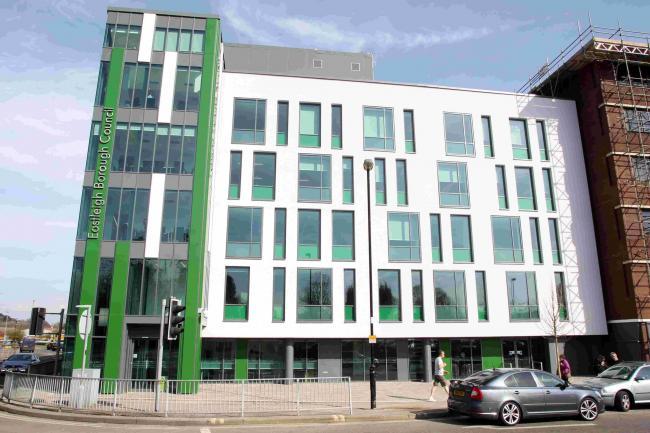ADD UPDATE, 19 December 2016: In front of several hundred passionate local residents, Eastleigh’s Liberal Democrat-controlled council last Thursday voted to keep all its options for its emerging Local Plan on the table with the caveat that future research efforts would be focused on the extent to which obstacles to the proposals in Allbrook, Bishopstoke and Fair Oak (so-called options B and C) are surmountable. Opposition to these options was clearly articulated by local residents, in set piece speeches, through a show of hands, and by dint of boisterous clapping in support of arguments against them.
Given the magnitude of the obstacles facing options B and C – on financial, technical and environmental grounds – there was widespread disappointment that the council didn’t vote to give alternative proposals in Allington Lane the same level of scrutiny in the next phase of its research. But, given the electoral imperative for Liberal Democrats to be cautious about these proposals, there was resigned acceptance of this political manoeuvring so long as all options remained on the table.
This tolerance was however severely tested the following morning when Keith House, the council’s wily leader for 22 years, manoeuvred too far by giving the impression in a carefully worded statement that the Allington Lane proposals had effectively been dropped due to the lack of “apparent highway solutions”. On the back of this statement, the Daily Echo published an article under the headline “Eastleigh council agree local plan to build 6,000 homes on land north of Bishopstoke and Fair Oak”, which was clearly a gross misinterpretation of what was actually agreed at the meeting.
For the many thousands of local residents whose lives will be significantly affected by these momentous planning decisions, these distortions of the truth – whether intentional or not – must stop. Too much is at stake. For trust in Eastleigh’s democracy to be maintained, residents must believe that their councillors, whatever their political hue, will act in good faith – and, post last Thursday’s meeting, that means taking planning decisions on the basis of the evidence – and nothing else. Until professional studies have satisfactorily addressed the multitude of concerns into the suitability and deliverability of the options available, nothing can happen.
In a council so tightly controlled by House, it is interesting that two Liberal Democrat councillors, Vickieye Parkinson-MacLachlan (Bishopstoke West) and Paul Bicknell (Eastleigh South), appear to have found events concerning enough to want to put the record straight.
Writing on Facebook on Friday, Vickieye Parkinson-MacLachlan said: “Last night’s meeting wasn’t to select ANY land in or out of the emerging Local Plan Process… We were asked to “Note” the work done by the officers [of the council] in assessing ALL sites and to green light them to keep evaluating ALL sites. The meeting in the spring will be the one to decide which options we carry forward for development consultation, as just about every councillor said last night – ‘we’ve all got concerns about most of the sites… I think we need lots more information, lots more data before the spring.’”
Also on Facebook, Paul Bicknell said: “I too am baffled at the Echo’s reporting as there was a no decision of a ‘Controversial site picked for 6,000 new homes’. As I said at the meeting and wish again to settle any confusion here, the decision was to set a direction of travel towards the point where a decision can be made which, as Vickie has said, will be next year. I made it very clear last night that the purpose was not to eliminate anything but to follow Government process in coming up with a local plan. There is a long way to go and much evidence, as a local plan is judged by the Inspector on evidence, to be obtained before any such decision can be made.”
As the evidence becomes available over the next few months, local residents must have confidence that councillors will react to it fairly and without political prejudice. The alternative would be truly dire for the borough and for its citizens’ belief in democracy – the bedrock of stability in our country. Perverse incentives cannot, and must not, be allowed to stand in the way of reason. Growing awareness of this issue, both locally and nationally, means the spotlight will be shining brightly on Eastleigh’s councillors in 2017.


